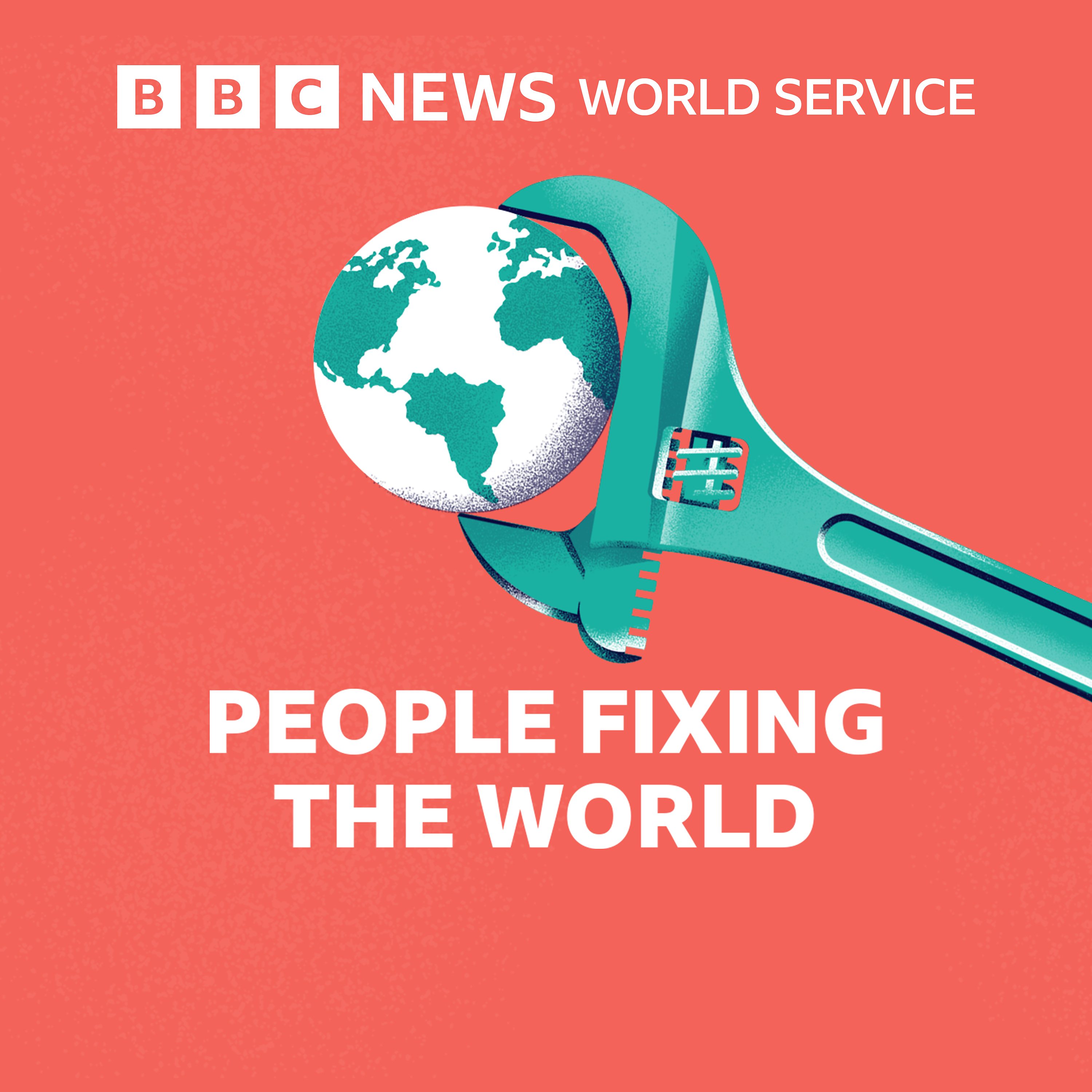

People Fixing the World
BBC World Service
Brilliant solutions to the world’s problems. We meet people with ideas to make the world a better place and investigate whether they work.
Episodes
Mentioned books

Mar 2, 2021 • 24min
The secret to making your stuff last longer
The world generates more than two billion tonnes of rubbish every year. So we’re visiting companies in Sweden that want to make it easier to mend things when they break instead of replacing them – whether that’s clothes, bikes or washing machines. We also hear about the country’s tax breaks designed to give people a financial incentive to repair more.Produced and presented by Maddy Savage

Feb 23, 2021 • 24min
Tackling sport’s concussion problem
Head injuries in sport can have a devastating effect on the brain, which is often only noticed later in life. So lots of people are investigating ways of making it safer to play sports such as American football, boxing and soccer. We look at new technology including smart mouth guards and innovative helmets, and we find out about the latest medical developments that are helping people to combat the risk of brain disease.
Produced and presented by Ben Wyatt

Feb 16, 2021 • 25min
Beating superbugs
A small team of Indian scientists think they’ve found a new way to kill superbugs. Antibiotic-resistant bacteria are killing hundreds of thousands of people every year, and that number is going up fast. But one Bangalore-based biotech company thinks they might be on the verge of a breakthrough.
Produced and presented by Jo Mathys
Picture: Science Photo Library

Feb 9, 2021 • 24min
How to store power in soil and salt
Giant towers of building blocks rising into the sky and huge vats packed with volcanic rock or molten salt are being used as massive batteries.
They are the latest ideas for storing energy generated by the sun and the wind – so you can keep the lights on when it’s dark or the wind isn’t blowing.
We meet the entrepreneurs and scientists who are trying to harness the fundamental forces of physics to power the world.
Presenter: Tom Colls
Image: The Energy Vault tower (c/o Energy Vault)

Feb 2, 2021 • 25min
The breath of life
A clever invention is saving the lives of hundreds of children.Pneumonia kills about 1.4 million children under five every year. Treatment with concentrated oxygen could save many of them, but the machines that provide it need a reliable source of electricity. Some hospitals have frequent power cuts though, which can be fatal.So scientists in Australia and Uganda came up with an innovative way to deliver oxygen when the electricity cuts out.Produced and presented by Ruth Evans.Repeat. This episode was first broadcast on 12 May 2020.

Jan 26, 2021 • 24min
The spacesuits saving mothers’ lives
A suit originally designed for astronauts has been adapted to save the lives of mothers who experience bleeding after giving birth. It stems the bleeding, buying time until people in remote areas can get to hospital for treatment.
Produced and presented by Craig Langran

Jan 19, 2021 • 25min
A forest down your street
Forests the size of tennis courts are being planted in towns and cities around the world. They use a special method from Japan which can grow a dense forest in just a few years. At that size they won’t make much of a dent in global warming but they do have many benefits including bringing increased biodiversity into the heart of the city.
Produced and presented by Richard Kenny
Picture: Afforestt

Jan 12, 2021 • 24min
The solutions whisperer
Dhruv Boruah’s mission is to inspire other people to solve problems facing the planet. What’s more, he gets them to come up with their ideas in just one day. But are their solutions any good and can they survive in the real world? Nick Holland went to Dhruv Boruah’s first solutions event in 2019. Two years on, he tracks down some of the people who were there to see whether anything came of their ideas.
Produced and presented by Nick Holland

Jan 5, 2021 • 24min
Can doughnuts save the planet?
Imagine a ring doughnut. This is the basis of an idea about how we could run the world in a way that gives everyone what they need - food, homes, healthcare and more - and save the planet at the same time. Economist Kate Raworth, who came up with the idea, explains how it works. And we visit projects in Amsterdam that are using the model to provide food, clothing and sustainable housing. Produced and presented by Anna Holligan.

Dec 29, 2020 • 24min
What happened next to our problem solvers
We revisit Lewis to find out how the hydrating sweets he designed for people with dementia have gone into production. We find out how a housing project where residents have to promise to socialise has coped with Covid. And the latest from a pharmacist in the Netherlands - after a setback, her operation to make cheap medication for her patients has started up again. Produced and presented by Claire Bates


